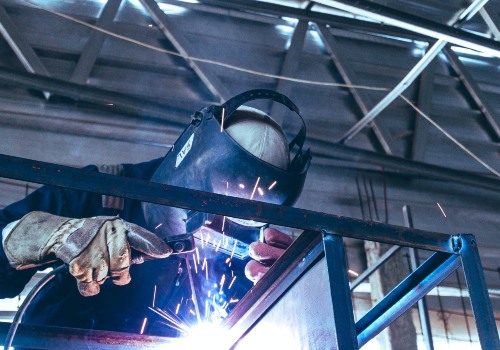Metalworking businesses need to be aware of the potential for visits from the HSE to oversee their fluid and coolant usage. Operators and managers should crack down on the performance and safety procedures involving metalworking fluids. The HSE will carry out unannounced inspections at each premises using these specialist machines between now and March 2024.
What are the dangers posed by metalworking fluids and machinery coolants?
Exposure to metalworking fluids, also known as white water, can cause irritation with unprotected skin or damage through inhalation. Health risks include:
- Irritation to hands forearms, including dermatitis
- Burns to exposed skin
- Poisoning via inhalation
- Harm to lungs and organs via inhalation
- Lowered white blood cell counts
- Bacterial infections
- Lung diseases such as asthma and pneumonitis
HSE Inspectors will focus on how employers are ensuring their workers are protected from exposure to metal working fluids or mist generated by computer numerical control (CNC) machines. They will need to see that regular health checks are in place and assess how strictly they are adhered to.
Why are the HSE carrying out metalworking inspections?
Work Right are running a campaign focussed on improving standards for metalworkers. They state that manufacturing companies, particularly smaller companies, commonly fall down on compliance.
The UKLA (United Kingdom Lubricants Association) has echoed this sentiment. They have published guidance on Good Practice for Safe Handling and Disposal of Metalworking Fluids, including helpful advice and health surveillance pictures. The UKLA have also published a practical series of videos, involving easy to follow demonstrations and quick tests that can be carried out by metalworking businesses.

What will HSE inspectors look out for when visiting metalworking businesses?
There are three key areas that the Work Right campaign has pointed out.
- Local exhaust ventilation
- Regular fluid quality checks
- Failing to provide regular health checks for lung and skin conditions.
Why do machinery businesses need local exhaust ventilation (LEV)?
The mist produced during machining is harmful to workers health when inhaled. Local exhaust ventilation (LEV) should be fitted to CNC machines where operators are exposed to mist.
Why should businesses do regular fluid quality checks?
When fluid, such as white water, remains in the machine over time, it becomes contaminated and bacteria may grow. Poor fluid quality can also affect the machine’s performance and the part’s deterioration. PH and Bacteria levels should be monitored daily.
How should businesses perform regular health checks?
The law required that employers have health and safety measures in place when health risks have a high likelihood of being present. A surveillance scheme must be in place, this is because measures cannot be relied upon. Occupational health experts will need to be involved in order to remain compliant.
At Romero Insurance Brokers, we always recommend Sentient UK to our clients. Sentient’s HR and health and safety team are second to none, offering tailored advice and documents to large businesses and SMEs.
How to prepare for a HSE metalworking inspection:
The HSE has provided information on how to be prepared for their inspections. Businesses should have performed these measures before October 23rd:
- LEVs should be fitted to disperse fluid mist. Metalworking fluids and mists are difficult to see in normal light.
- Fluid quality should be checked every day. Checks need to focus on concentration, pH, bacteria and contaminants.
- Health surveillance and preventative measures need to be in place. The regular checks will inform whether the control measures are working.
- The use of occupational health professionals, who can help provide guidance on measures and report any health symptoms of your employees, is essential and should be documented.
The HSE have provided more information about each of these necessary preparations:
- Guidance on buying and using local exhaust ventilation.
- Machining with metalworking fluids information sheet.
- How to look after your metalworking fluid.
- Setting up occupational health and health surveillance.
And get in touch with HR and Health & Safety Compliance Experts, Sentient, to have an occupational professional help your business get prepared.
Either contact Romero Insurance Brokers for guidance or go to Sentient.



